ABN say never again to the Genocide �which can happen elsewhere in Africa�
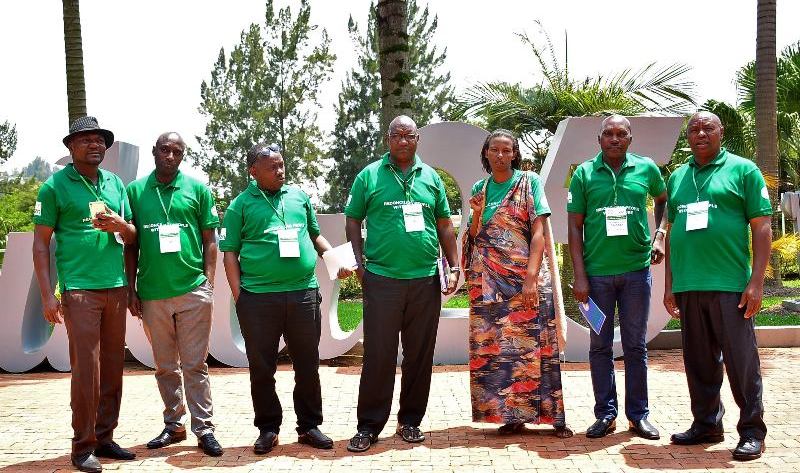
Members of the African Biodiversity Network (ABN) who participate in The Regional dialogue on Agroecology in Rwanda 2020 say �never again to genocide which can take place everywhere in the in Africa and the world as a whole.�
The remarks were made on Monday, January 20th, 2020 by The Head of the ABN, Kenyan, Simon Mitambo during the visit to both Kigali Memorial Genocide at Gisozi and The Campaign to Stop Genocide Museum in Kigali at the Parliament.
The Regional dialogue on Agroecology in Rwanda 2020 participants during the visit at Kigali Genocide memorial at Gisozi
Mitambo said from what he has seen that genocide can take place everywhere in the world as long as people are there to participate and they are badly driven by politics.
�When we come here we understand how genocide against the Tutsi happened. It is very key thing for me to come here in Rwanda because Genocide which took place in Rwanda can also happen in my country Kenya, but it can also happen somewhere else in Africa. I am grateful to Rwandan who managed to keep that history. I have seen many things that future generation will also be able to see, something that will never repeat again.� Mitambo said
He expressed gratitude to the government of Rwand in effort to unite and reconcile Rwandans. Mitambo emphasised that the diversity should also be the opportunity to build the nation instead of being our difference.
�When I looked at how genocide was organised, I reflected on how Rwandans have cultural norms that brought them together. There is a need of using cultural norms in the process of healing. People lived together happily before the arrival of colonialists. This is a very lesson [The 1994 genocide against the Tutsi] for Africa especially the way it happened. Our ethinics, clans, tribes cannot be politicised in order to avoid conflicts.�
Simon Mitambo (center) speaking to other participants durint the visit at The Campaign to Stop Genocide museum in Kigali.
One of the participants from Togo, Dommassi Komlan said though he did his best to read some documents on genocide against Tutsi, he could not grasp the magnitude of it before visiting Kigali Genocide Memorial.
�I have read some books, watched some documentaries before coming here yet I could not imagine how it is very emotional. I come here to understand better than before. I was really emotionally impressed. What I can say is that never again to genocide anywhere in Africa� Komlan recalled
Komlan�s message to genocide deniers �They need to be sensabilised. In my opinion, they will realise the reality and turn the page of how they understand the genocide against Tutsi.� He encourages Rwandans to keep reconciliation way, maintaining peace and stability.
One of the participants from Togo, Dommassi Komlan
The visitors are in Rwanda for a Regional Workshop organised by The Global Initiative for Environment and Reconciliation (GER) Rwanda, under the umbrella of the African Biodiveristy Network (ABN) Kenya.
Innocent Musore, the organizer recommended that visiting Kigali Memorial site of the 1994 genocide against Tutsi should also go with visiting The Campaign to Stop Genocide museum in Kigali at the parliament. �When people visit Kigali memorial site and this campaign to stop genocide museum they get the full story of how genocide was planned, executed and stopped as well as the process of reconciliation.� Said Innocent Musore, GER Executive Director.
GER Executive Director, Innocent Musore during the event
It is expected that ABN Partners who are currently in Rwanda, will participate in all activities which are scheduled to take place from 21st to 24th January 2020 in Bugesera District.
Participants of The Regional dialogue on Agroecology in Rwanda 2020 during the visit at The Campaign to Stop Genocide museum in Kigali.
The regional workshop will undertake several activities as outlined including a project inception meeting highlighting context, global trends analysis and policy review in Africa in relation to the project, Training on community dialogues and research on indigenous seeds and related knowledge and practices, and a seed fair exchange and festival at community level where GER is working with communities on seeds.
Photo credits: Aphrodice Nshimiyimana/GER
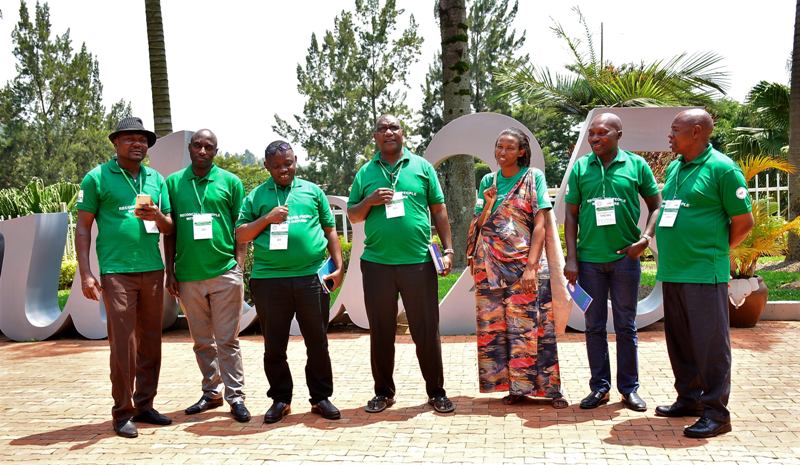
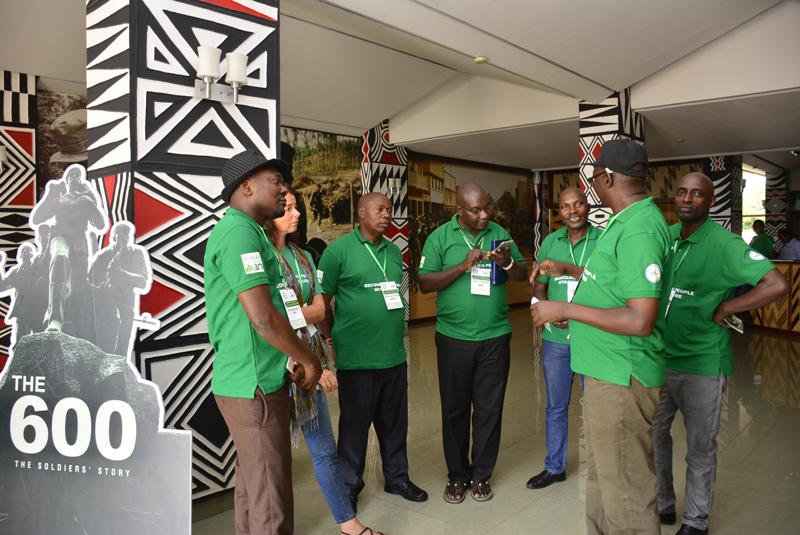

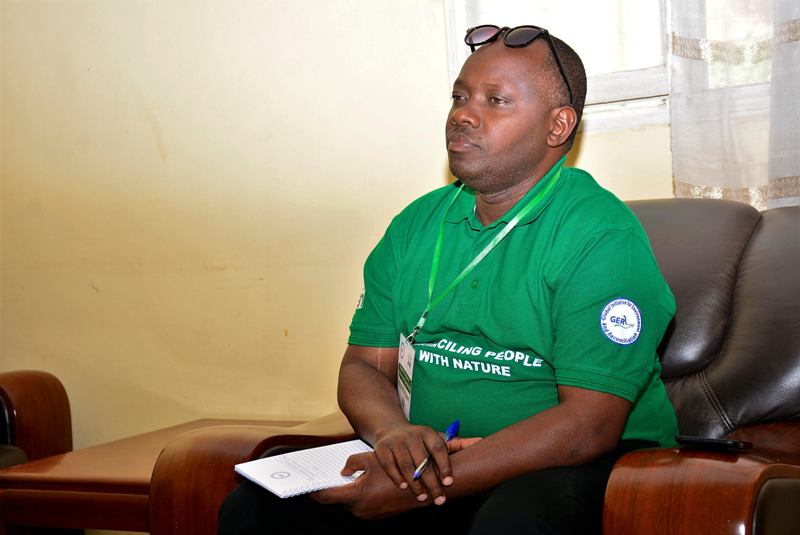
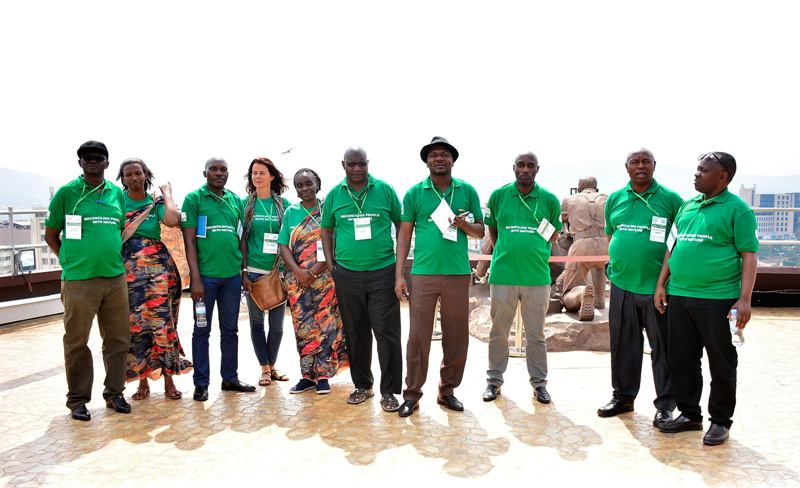



Leave a Comment